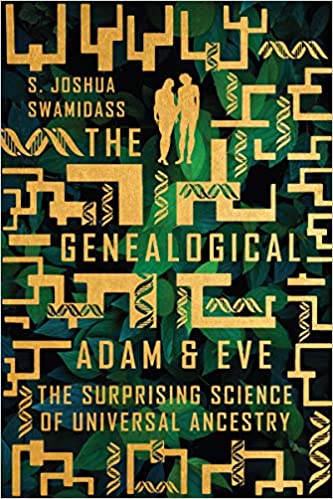Q. You and I both use the terminology of Adam being the federal head of the human race such that his behavior affected the whole race. I personally am not sure this has anything to do with the idea of seminal transmission of sin, guilt or a fatal flaw to all of Adam’s descendants. I think it has to do with Adam being the representative head of the race, whatever his relationship with all other humans such that his decision affects us all, just as say the President of the U.S. making a decision to go to war with Jamaica (to use a silly example) implicates and affects all American citizens who without personal choice are necessarily at war with Jamaica. Bill Craig deals with the problems with the original sin passed down argument. I would simply say sinful actions by the head of the race have moral consequences for us all. And as Paul says in Rom. 5 Adam sinned and so did we, and in both cases our own sin caused spiritual death. Comments?
A. Few of us are committed to a particular formulation of Original Sin. The core issue is not “guilt by biological transmission” theology, or Augustine’s misreading of Romans. Instead, the key question is of the Fall. How did Adam and Eve’s sin affect us all?
Our theology of a historic Fall is potent, and it’s just mere Christianity. Adam is our federal head. That’s true, and it is also banal.
The bigger question: how and why did his fall affect us all? How and why is Adam our rightful head? None of us ever opted into a relationship with him, nor can we disassociate from him, and some of us think he is a fiction. So how exactly are we bound to him as our federal head?
The weight of Church tradition teaches that Adam and Eve, whether we know of them or not, are our federal heads because we descend from them. If we want to depart from traditional teaching here, we need something at least as coherent as natural descent to replace it. Now, I agree that, in principle, federal headship does not require natural descent. The example of the president declaring war on Jamaica is a great example of a type of headship that does not require descent.
This example, however, is extremely disanalogous to federal headship by Adam. The president’s representation of us is not arbitrary: we all participated in electing the president and enjoy legal privileges from citizenship, and we are aware of the president’s decisions, and participatory in them in several ways. In fact, we can also renounce our citizenship if we choose too! In this sense we are bound in a visible and volitional way to the President.
The same is not true of Adam and Eve. However, something must be offered to replace ancestry if we want to discard it. Your example of declaring war on Jamaica is a great counter example to a context where ancestry would not matter. However, that counter example is extremely disanalogous to federal headship from Adam. The atheist doesn’t believe Adam exists and none of us were around to participate in their Fall, and none of us by our volition can disassociate ourselves from Adam’s headship.
We have no visible or volitional connection to Adam, so how is he our federal head? I suggest a few answers in my book.
Adam and Eve, if they are real people in our past, they are our ancestors. That’s true whether we know it or not. We cannot out opt out of this fact of reality. For this reason, whether we like it or not, we are causally dependent on them, just as all offspring depend on their parents. When Adam and Eve fell, God exiled them instead of executing them. Had he executed them instead, none of us would have been born. Perhaps that debt of mercy has theological entailments on us now.
Perhaps this proposal works. Perhaps it doesn’t. But the proposal still engages the core question. And it is not the whole story. There seems to be a strong connection between the rise of agricultural civilization in the last 10,000 years and the narrative of Genesis. Could the way civilization rises, the world that we inherit, does it bear marks of the Fall? Whatever the case, we need to move past the simple answers. We need to move away from facile critiques of highly particular and parochial conceptions of Original Sin. There are grander questions here.
How is it that Adam and Eve’s sin impacts us all? How is it that Adam is our rightful head? What is the mechanism of the fall? Can there be justice in a world defined by inheritance?













